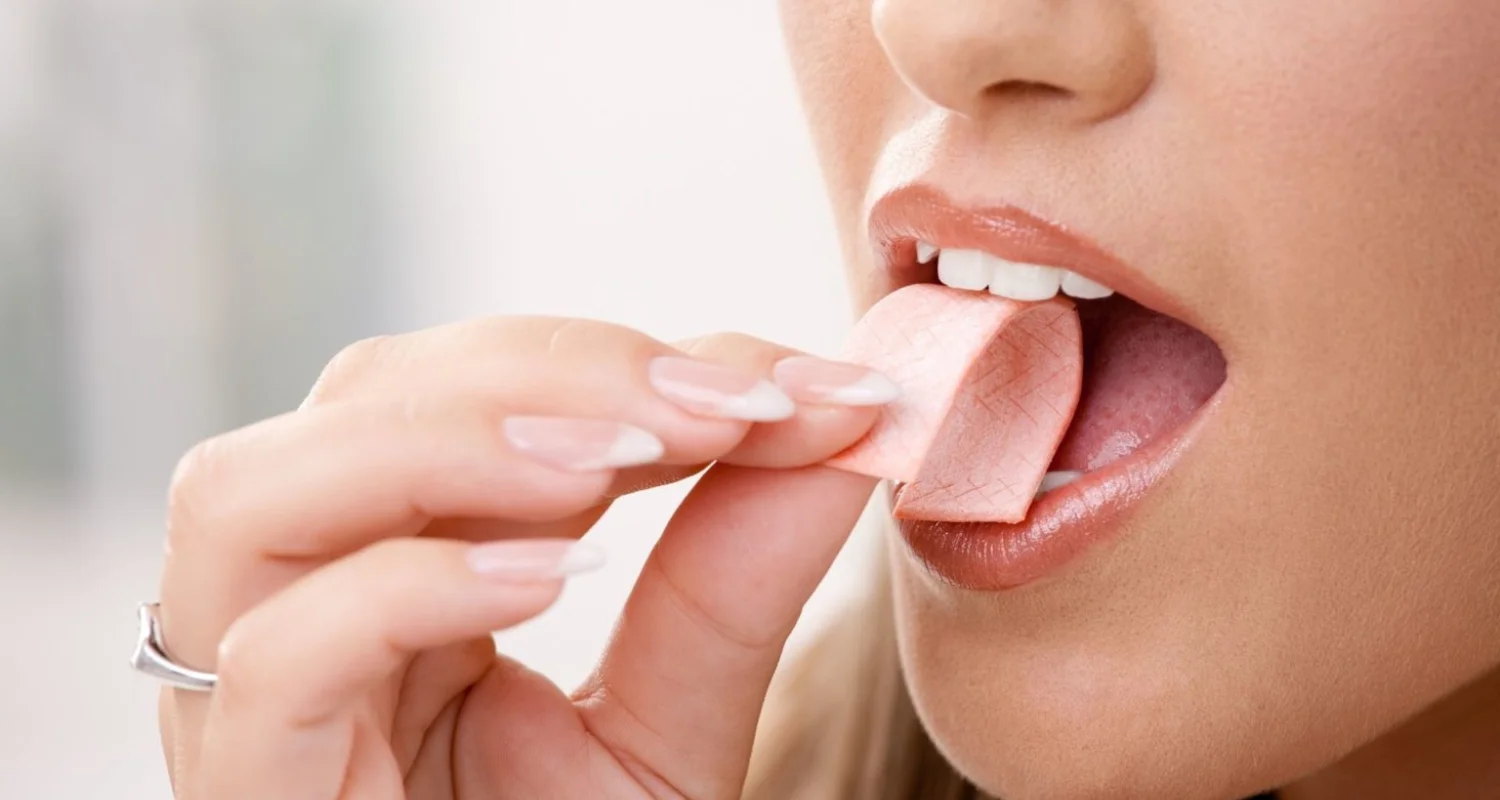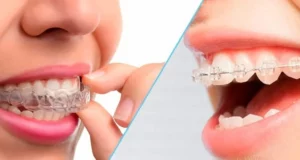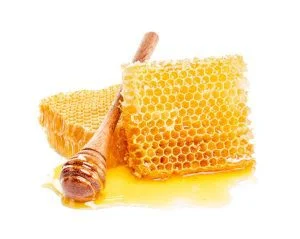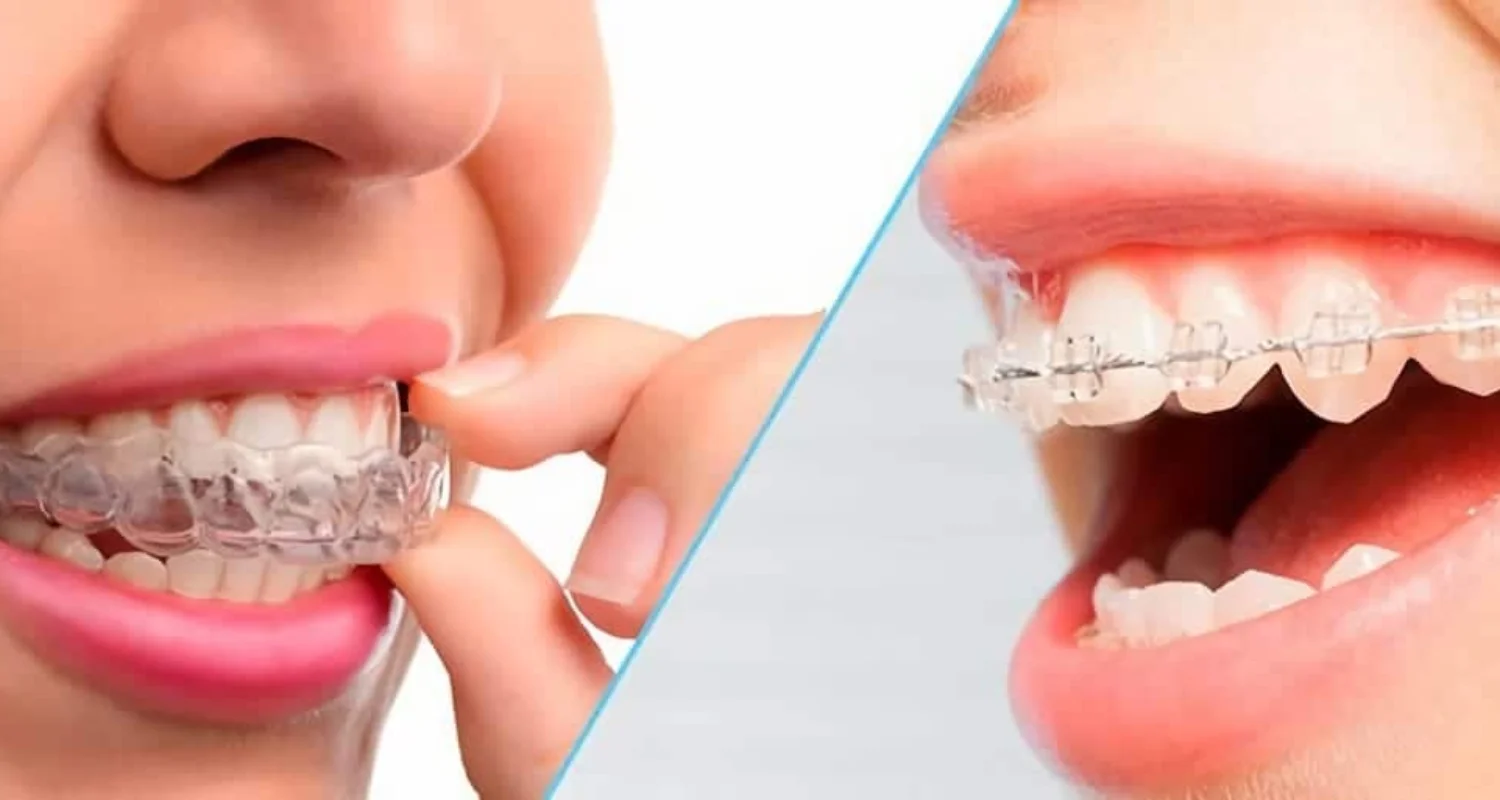Last Updated on: 27th June 2024, 12:59 pm
✓ Fact Checked 🕓
❙ Our team of writers, editors, and medical experts rigorously evaluates each article to ensure the information is accurate and exclusively cites reputable sources.
❙ We regularly assess how the content in this article aligns with current scientific literature and expert recommendations in order to provide the most up-to-date research.
Chewing Gum to Prevent Cavities
Dental care is essential to overall health, and dental cavities remain one of the most prevalent health problems worldwide. Although there are significant advances in dentistry, the search for effective preventive methods is still essential. In this context, the use of chewing gum has emerged as a promising option. This article focuses on how chewing gum can be an effective ally in preventing tooth decay.
What are Dental Cavities?
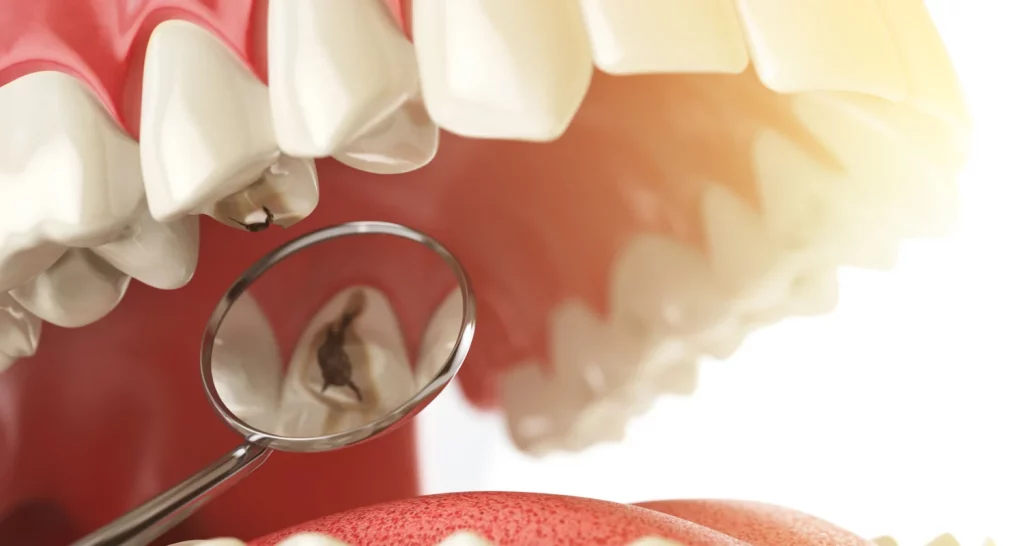
The World Health Organization defines dental cavities as conditions caused by the accumulation of bacterial plaque on the teeth. Plaque is formed by the ingestion of foods and drinks containing sugar and the action of microorganisms. The susceptibility of the tooth is a crucial factor. Insufficient application of fluoride and inadequate oral hygiene are also contributing factors.
How to Effectively Prevent Dental Cavities?
Currently, dental caries stands out as one of the most common oral conditions, particularly in children. For this reason, the American Academy of Pediatrics suggests several habits to maintain optimal oral health:
1. Maintain proper oral health: This implies rigorous oral hygiene, brushing your teeth frequently after each meal, at least three times a day while paying special attention before sleeping. Of note, sleep saliva production decreases during sleep, increasing the risk of cavities. In addition to brushing, it is wise to use toothpaste with fluoride and dental floss to remove food debris and bacterial plaque between the teeth. It is also advisable to use mouthwash to remove plaque that the brush and floss have not removed.
2. Special care for baby teeth: Depending upon the age of the child, specific care must be applied:
● From birth to one year: The baby’s mouth should be cleaned, especially the gums until the first teeth appear. At that time, gentle brushing should begin with a small amount of fluoride toothpaste, equivalent to the size of a grain of rice. During visits to the dentist, you can consult about the application of fluoride. Find out how fluoride can transform your dental health in our article.
● From 12 months to 3 years: It is advisable to brush your child’s teeth at least twice a day, after breakfast and before bed, using the amount of toothpaste mentioned above.
● From 3 to 6 years: The amount of toothpaste should be increased to a pea-sized ratio, maintaining brushing twice a day, supervised by the parents.
3. Prevent the Child from Sleeping with a Bottle or Eating: This not only prevents the risk of choking, but it also reduces exposure to sugars at night, when saliva production decreases.
4. Limit Consumption of Sticky Foods and Sugary Juices: It is important to avoid regular consumption of sticky foods such as candy and cookies, as well as limit the intake of juices during meals.
5. Use of Sugar-Free Chewing Gum: The use of sugar-free gums is recommended, preferably those that contain xylitol, mannitol, or sorbitol.
6. Regular Dental Visits: The American Academy of Pediatric Dentistry advises that, upon turning one year old, the child should have his or her first dental visit to establish appropriate oral health habits, make timely diagnoses, and accustom the child to the process. It is suggested that the child visit the dentist at least twice a year.
The Role of Chewing Gum in Preventing Cavities
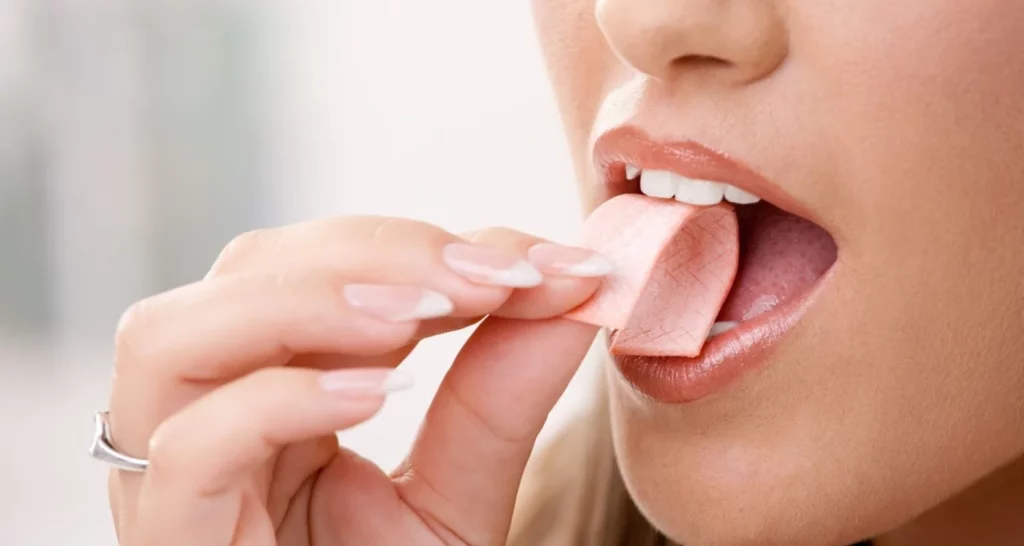
Initial studies on the use of chewing gum in dentistry date back to the 1970s. Currently, many dentists promote the use of chewing gum as a preventative method against tooth decay.
In developed countries, a decrease in the incidence of dental caries in students has been noted in recent years. This trend is attributed to the implementation of various preventive strategies, such as effective plaque management, the application of fluoride, and, notably, the frequent use of chewing gum as a preventive measure.
The American Dental Association (ADA) has incorporated the consumption of gum that contains xylitol, sorbitol, mannitol, or other polyalcohols, in combination with adequate oral hygiene, as a tactic to reduce the incidence of dental cavities.
It is important to note that research indicates that the preventive effect of chewing gum in reducing dental caries manifests itself at approximately 20 minutes of use after each meal.
Types of Beneficial Gum
Chewing gums with xylitol, sorbitol, and mannitol are especially recommended. These natural sugar alcohols act as sugar substitutes and are approved by entities such as the US Food and Drug Administration and the WHO.
Effectiveness of sugar-free gum
Various studies have shown that chewing sugarless gum for 20 minutes after eating can significantly reduce the prevalence of cavities. Studies carried out in several countries have shown that xylitol, a common ingredient in chewing gum, has dental remineralization properties and prevents the formation of cavities. This has led dental associations in Nordic countries, such as Finland, to recommend the use of gum with xylitol as a preventive measure. Similarly, the US National Institute of Health has promoted the use of gum with polyalcohols such as xylitol, sorbitol, and mannitol to prevent tooth decay. Explore the pros and cons of xylitol toothpaste in our article.
Mechanism of Action of Chewing Gum in the Prevention of Cavities
Chewing gum stimulates saliva production, a key element in preventing tooth decay. its self-cleaning properties and the help of the tongue, cheeks, and lips, saliva facilitates the removal of bacterial plaque. In addition, it helps balance oral pH, neutralizing the acidity caused by food and bringing it to a neutral state. Saliva also has antimicrobial qualities and promotes the remineralization of teeth; thus, the use of chewing gum is considered an effective preventive measure against dental cavities.
The American Dental Association includes the use of sugar-free gum, especially those with xylitol, sorbitol, or mannitol, as part of its recommendations to reduce tooth decay.
Importance of Oral Hygiene Along with the Use of Gum
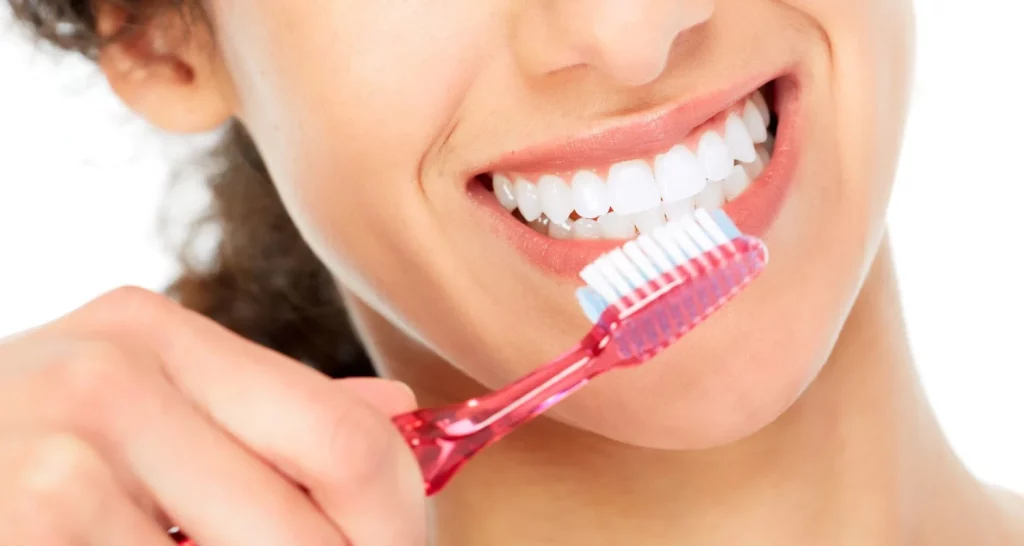
Despite the benefits of chewing gum, it does not replace the need to maintain proper oral hygiene, including brushing, flossing, and using mouthwash. Discover the salt water rinse in our article.
Dental care in children: It is vital to adopt specific dental care for children at different stages of their growth, from oral cleaning in babies to supervised brushing in older children.
Of note, research also indicates that the simple act of chewing gum after eating, even if it does not contain sugar substitutes, can reduce the prevalence of tooth decay.
Conclusion
Chewing gum, especially those without sugar, emerges as a useful and complementary tool in the prevention of dental cavities. However, it should be part of a comprehensive approach that includes proper oral hygiene and regular visits to the dentist.
Frequently Asked Questions
What kind of gum do dentists prefer?
Most dentists advise using sugar-free gum. Chewing gum that contains sugar can increase the risk of developing cavities, as the teeth are exposed to sugar for a long time.
What gums don't hurt?
Chewing gum that contains xylitol may be more beneficial than we think. This substance inhibits the appearance of bacteria and promotes remineralization of teeth, which helps prevent cavities.
What types of chewing gum are beneficial for teeth?
Chewing gum containing xylitol turns out to be more advantageous than you might think. Xylitol is effective in inhibiting the growth of bacteria and promotes dental remineralization, thus contributing to the prevention of cavities.
What kind of gum helps whiten teeth?
The ingredient, Calprox, gently and efficiently dissolves into the biofilm that adheres to teeth, safely removing stubborn surface stains, such as those caused by coffee, tea, or red wine. These gums, with a pleasant mint flavor that lasts, provide fresher breath and are sweetened with 65% xylitol.
Share:
References
1. Esparza Olcina MJ. (2012). Xylitol has its place in the prevention of dental cavities. The pearls of PrevInfad.https://perlinfad.wordpress.com
2. Velásquez Castilla M, Narváez Carrasco C.(2013) Effect of Xylitol Chewing Gum on Dental Plaque, SalivaFlow and Saliva Buffer Capacity in Chilean Youngsters. International journal of odontostomatology. http://www.scielo.cl/scielo.php?script=sci_arttext&pid=S0718-381X2013000100021&lang=pt
3. Duane B. (2015) Xylitol and caries prevention. Evidence-Based Dentistry. https://www.nature.com/ebd/journal/v16/n2/full/6401088a.html
4. Herrero Peydro, et. to the. (s.f.). Xylitol as a prevention of dental cavities: where to get it and how to consume it. Clinical Dental Work.https://www.revistalabordentalclinica.com/wp-content/uploads/2019/06/El-xilitol-como-prevenci%C3%B3n-de-la-caries-dental.pdf
5. M. Rebelles Llop. F. Guinot Jimeno. (2016). The role of chewing gum in the prevention of dental caries. Pediatric Dentistry.https://www.odontologiapediatrica.com/wp-content/uploads/2018/05/104_ribelles.pdf
6. Pastor Ignacio. (2016). Is chewing gum after meals equivalent to brushing your teeth? Sanitas.https://muysaludable.sanitas.es/salud/dental/masticar-chicle-tras-las-comidas-equivale-lavarse-los-dientes/


